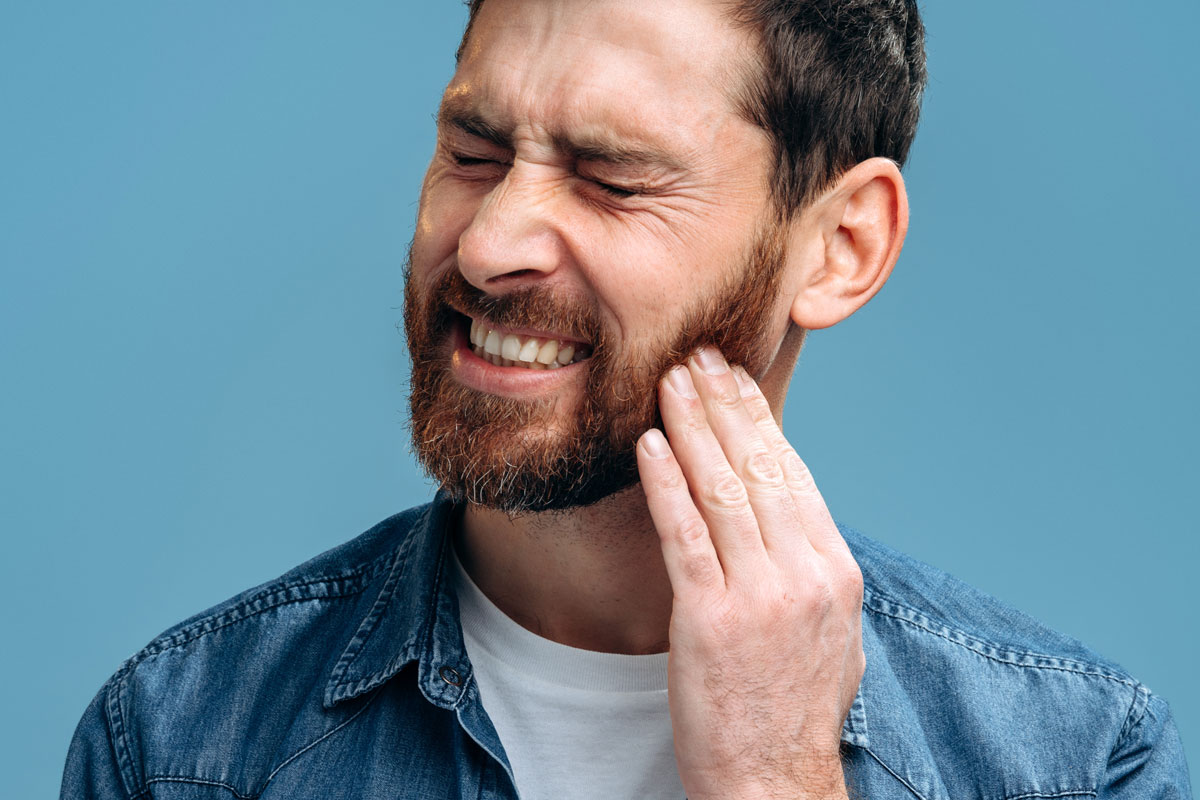
Cavities are one of the most common oral issues to happen in adults and children. Over half of children aged 6 to 19 have had cavities in either their baby teeth or permanent teeth, and by 20 years of age, 90% of adults have had at least one cavity in their lives. Untreated cavities can cause a variety of painful and sometimes severe health issues. Seeing a dentist regularly, experts recommend every six months, ensures that your teeth and potential cavities are being monitored so that they don’t escalate over time.
What Is A Cavity?
A cavity happens when a hole develops in the tooth, usually caused by tooth decay. These holes can form as a result of an inconsistent oral hygiene routine, a diet of excessive sugar, food that gets stuck in the tooth for a long period of time, and a build of plaque on the outer layer of the tooth. These causes wear down the protective surface of the tooth leaving the inner nerves and pulp vulnerable to exposure.
Different Types Of Cavities
Cavities, when left untreated, can harm all areas of the tooth. Though it can take years for a cavity to form on the outer layer of the tooth, it can quickly erode the dentin and pulp, the middle and inner layer of the tooth respectively. Cavities can be broken down into three main types. These types are characterized based on which stage of decay the tooth is in.
- Smooth surface. Smooth surface tooth decay is arguably the best-case scenario of the three. This type of cavity happens on the outer surface of the tooth and is slow-growing. If you catch it early enough, it can actually be reversed through increased dental cleanings and an improved dental hygiene routine equipped with proper flossing and brushing techniques. Flossing is particularly important as this cavity often forms between teeth, a hard-to-reach spot when it comes to brushing.
- Pit and fissure decay. Pit and fissure cavities form on the top part of the tooth, the area most exposed to food when chewing. It can also happen on the front side of the back teeth depending on your mastication habits. Pit and fissure cavities are particularly alarming because they progress very quickly. Meaning, that if they form and are caught even a short time after, they may already be too far progressed to reverse.
- Root cavity. Root decay happens primarily in older adults who already are experiencing receding gums. When the gum recedes, previously covered areas of the tooth can become more prone to tooth decay. Additionally, when the gums recede, the tooth’s root is exposed to plaque and acid in the mouth. Once the root begins to decay, it can be very painful and difficult to treat.

Causes And Symptoms
Cavities can be caused by a variety of factors. Most commonly, bacteria, acid, food, and saliva that sit in the mouth mix to form plaque. Plaque then coats your teeth and if not properly brushed and flossed away, it builds up over time. This is especially common in those who consume a diet of primarily starchy and sugary foods like candy, sweet cereals, sodas, and juices. The bacteria of the mouth converts the carbohydrates in these foods to create damaging acids. As the plaque builds up on the tooth, it weakens the protective layer, dissolves the enamel, and creates holes.
Depending on the type of cavity you’re experiencing, you may not notice specific signs or symptoms. Generally, if the decay is still happening on the outer layer your mouth and teeth may feel normal. Only when cavities begin to progress deeper into the tooth that most people experience symptoms. Some of the most common include toothache or pain, tooth sensitivity to hot and cold foods, bleeding gums, bad breath or taste in the mouth, facial swelling, and redness in the mouth.
Who Is At Risk For Cavities?
Cavities can affect just about anyone, especially if you don’t maintain a proper oral hygiene routine. But, there are certain factors that can elevate the likelihood of getting a cavity. Receding gums, eating a diet high in sugar, family history of tooth decay, radiation therapy close to the mouth, taking medications that can cause dry mouth, and certain health conditions like Sjorgen’s syndrome are all risk factors.
What Happens If I Ignore A Cavity?
Ignoring a cavity is one of the worst things you can do for your oral health. Cavities are a sign that your teeth are no longer able to protect the vulnerable nerves and pulp that live inside them. If cavities go untreated for a period of time, you may experience painful consequences. Some of the most common include:
- Nerve damage. When cavities progress far enough, the nerves on the inside of the tooth become exposed. These nerves are vulnerable to the outside elements and are easily damaged. If you have nerve damage, you may need to undergo a root canal procedure. If the nerves die from being exposed, the entire tooth may need to be extracted.
- Tooth breakage. Your teeth have a protective layer so that they can withstand day-to-day usage. But when cavities begin to eat away at this outer surface, the tooth weakens and becomes unstable. Unstable teeth are prone to cracking and breakage, both painful and problematic occurrences. If your tooth breaks, you may need to seek emergency dental work which can be expensive and uncomfortable.
- Tooth infection. The holes formed by cavities allow bacteria to enter the vulnerable parts of the tooth and cause infection. Tooth infections can be very painful and cause inflammation and swelling. Untreated tooth infections can also spread to other parts of the mouth and body and cause typical infection symptoms such as body aches, fever, and chills.

How Are Cavities Treated?
Cavities are treated through different methods depending on their placement and severity. If you catch your cavities earlier, the solutions are rather easy and not very painful. But if you wait too long, you may have to endure an uncomfortable and costly procedure.
For less severe cavities, most dentists will administer a fluoride treatment. Fluoride can help restore the tooth’s enamel and even reverse the cavity if it is early enough. Next, come the fillings. Fillings are done when cavities get past the earliest stage. Your dentist will fill the cavity’s hole with resins, porcelain, or dental amalgam. If the decay is relatively extensive, you may be in need of a crown. Crowns cover the top of the tooth, protecting it from any outside bacteria or acids. For severe tooth decay that reaches the inner pulp, you may need a root canal. Root canals are done to repair the damaged tooth by removing the infected pulp. Lastly, the worst-case scenario is tooth extraction. This happens when the tooth is so badly decayed that there is no way of fixing it. Tooth extraction removes the dead tooth and sometimes replaces it with a dental implant or it may leave you with a gap in your mouth.
Abundant Dental
Abundant Dental offers an experienced team of dentists that specializes in all areas of dental care from emergent and cosmetic services to orthodontics and pediatric dentistry. With extended hours and 24/7 emergency care, they are here to help you in whatever you may need. We offer multiple locations across Utah and are equipped with the tools and resources to help you get a healthier, stronger smile.
